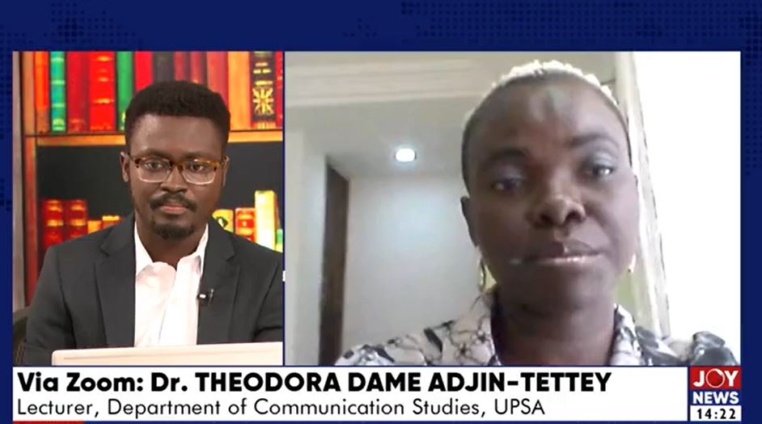A communications lecturer at the University of Ghana (UG) has observed that there are still major impediments to the implementation of the Right to Information (RTI) Law.
Dr Theodora Dame Adjin-Tettey said many public office holders are mostly reluctant in giving out information, even under the RTI Law, because they are glued to the old ways of performing their duties.
She noted that some are still not abreast of their duties under the law so they always frustrate persons who apply for information using the RTI law.
Speaking to Joseph Ackah-Blay on The Law, Dr Adjin-Tettey revealed that many civil society actors have that impression which seems to deter them from making any move in getting information.
This, she believes, destroys the rationale and objectives of the law.
“I spoke to a number of civil society actors; they get the impression that public servants are stuck to their old ways of doing things. You go into an office, you swear an oath of secrecy and confidentiality so those things are really a major impediment to accessing information,” she said on Sunday, September 25.
The opportunity to access information by the public is provided for in Ghana under Article 21(1)(f) of the 1992 Constitution which “guarantees the right to information by all persons, subject to such qualifications and laws as are necessary for a democratic society.”

Despite how succinct the provision is set out to operate, Dr Adjin-Tettey highlighted that other challenges like the unavailability of information officers have restricted access to information in some public institutions.
The RTI law stipulates that where there is no information officer, the head of an institution should be treated as the information officer.
The academic wants some clear-cut criteria to be outlined for public institutions to guide them in the selection of information officers and other persons who aid in access to information.
“It’s one of the things that we found that because there are no information officers, a lot of the time, the process becomes slow.
"Some of the challenges, particularly when it comes to the sub-national agencies like the district assemblies; it’s quite difficult to get information from there because a lot of the time they feel that they need clearance from the headquarters or the main ministry.
“…once the go-ahead is given, then they can give that information but we should also note that if the response from the Ministry says ‘don’t’, then they are likely going to comply with the ‘don’t’.”
Latest Stories
-
Ghana’s public debt stock falls to GH¢613bn in June 2025
47 minutes -
Cedi appreciates by 40.7% to US dollar in seven months of 2025 – BoG
55 minutes -
Silicon cannot feel: Why humans will always matter in an AI world
1 hour -
AAMUSTED students gripped by emotional lecture on Ghana’s environmental crisis
1 hour -
Trans-Sahara Project kicks off with reconnaissance visit to Bolgatanga and Tamale
2 hours -
Black Queens visit Jubilee House after WAFCON heroics; Mahama promises security service recruitment support
2 hours -
Alien: Earth to Wednesday: 10 of the best TV shows to watch this August
2 hours -
Forestry Commission condemns illegal shutdown of three district offices in Ashanti Region
2 hours -
National Security must end interference in Forestry Commission’s work – Anti-Galamsey Coalition cautions
2 hours -
Keep your eyes on us – MOBA 2015 marks inauguration with a promise to lead and serve
2 hours -
BoG warns financial institutions violating forex act; threatens to revoke remittance licenses
3 hours -
EPA engages media on land reclamation campaign; vows crackdown on non-compliant miners
3 hours -
Samini set to perform at 2025 Guinness Ghana DJ Awards
3 hours -
Beyond my wildest dreams: A journey to the White House, U.S. Capitol, and a life-changing leadership opportunity
4 hours -
Michael Bartlett‑Vanderpuye named CEO of the Year – Exporter at Ghana CEO Vision, Exhibition & Awards
4 hours

